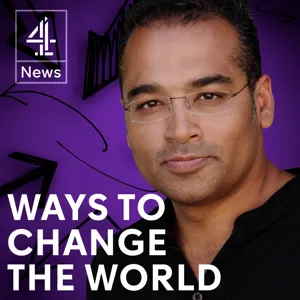Author Kiley Reid on Black artists, handling criticism and social media

“I don’t write fiction to preach my politics,” says Kiley Reid - an American author whose debut novel “Such a Fun Age” was longlisted for the 2020 Booker prize. The book gained recognition for its themes on race, privilege, and social dynamics in modern America.
Fast forward to 2024, and Reid’s second novel, “Come and Get It” delves even further into the heart of societal complexities. It’s based in a US campus and centred around money and wealth - who has it and who wants it - and the impact it has, on even the most personal of relationships.
In this episode of Ways to Change the World, Krishnan Guru-Murthy speaks to Kiley Reid about the importance of finding stability whilst being a writer, the impact of having a theatre background on her writing, and her thoughts on being social media savvy as an author.
Produced by Silvia Maresca and Shaheen Sattar.